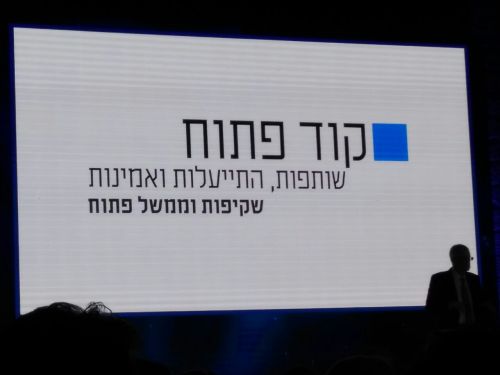Data.gov.il was created in 2011 after the Israeli social justice protests as part of the the public participation initiative and started to offer data held by the government. Back then the website was based on Drupal. In 2016 it was changed to CKAN, a designated system for releasing data. This system is licensed under the AGPLv3 requiring source code availability for anyone who can access the the system over a network, de facto for every user.
Since the change to CKAN, open source people asked the state to release the code according to the license but didn’t get a clear answer. All this time when it’s clear it’s violation. This led Gai Zomer to file a formal complaint in March 2017 with the Israeli State Comptroller. Absurdly, that same month the ICT authority mentioned a policy to release source code it owns, while failing to release code it has taken from others and adapted.
With the end of the summer break and Jew holidays, and after I wasn’t able to get the source, I decided to switch to legal channels, and with the help of Jonathan Klinger and my company, Kaplan Open Source Consulting, we notified they should provide the source code or we’ll address the court.
Well, it worked. In 3 days time the CKAN extensions where available on the website, but in a problematic way, so users weren’t able to download easily. This is why we decided not to publish this code release and let them fix it first. In addition we made it clear all the source code should be available, not only the extensions. Further more, if they already release it’s recommended to use git format instead of just “dumping” a tarball. So we told them if they aren’t going to make a git repository we’ll do that ourselves, but in any case, would prefer them to do that .
While this issue is still pending, the ICT authority had a conference called “the citizen 360” about e-gov and open government in which they reaffirmed their open source plans.

A slide about open source from the Israeli ICT authority presentation
Now, a month later, after our second letter to them, the about page in data.gov.il was updated with links to the ICT authority GitHub account which has the sources for the website and the extensions. A big improvement, and an important mark point as the commit to the repository was done by an official (gov.il) email address.
Beyond congratulating the Israeli ICT authority for their steps forward and the satisfaction of our insisting on them became fruitful, we would like to see the repository get updated on a regular basis, the code being given back to the various CKAN extensions (e.g. Hebrew translation). In general, we hope they would to get inspired by how the how data.gov.uk is doing technical transparency. If we allow ourselves to dream, we would like to see Israel becoming a dominate member in the CKAN community and among the other governments who use it.
We’re happy to be the catalyst for open source in the Israeli government, and we promise to keep insisted where needed. We know that due to other requests and notifications more organizations are on their way to release code.
(This post is a translation from Hebrew of a post in Kaplan Open Source Consulting at https://kaplanopensource.co.il/2017/11/20/data-gov-il-code-release/)

.jpg)


